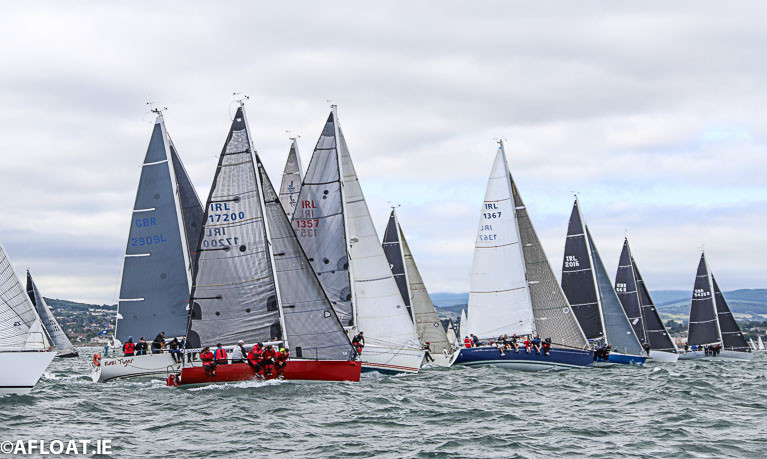What is the most important, challenging and decisive part of yacht racing?
“The start of the race.”
That was what experienced skippers and crews told me - on the start line a race could be won and lost.
So, when I ‘stepped up’ from dinghy racing and what was described to me by the “cruiser class” as “the wet ass brigade” I was well aware of start line importance.
But I found there was one major difference - Language and the force and manner of its expression!
My introduction to this was in my first race in my first cruiser, my first ‘Scribbler’ – a Ruffian 23. Two weeks after I bought her and two days after launching, she was on the start line for the National Quarter Ton Championships raced out of the Royal Cork YC at Crosshaven. It was a heavy weather day, some 30 years ago, so windy that racing was inside Cork Harbour because outside the conditions were too severe.
My experience up to then was of dinghy racing, Mirrors and 12ft. Vagabonds in Monkstown Bay and National 18 crewing. Scribbler’s crew was me on the helm, with my young son and his friend. On the start line over 20 yachts of various sizes and design circled each other in what was then the 10-5-minutes start sequence. Helming 23-feet amongst them was a bit different from 12-foot dinghies as they prowled each other.
When the start gun went they all charged for the same part of the line – as close as they could get to the stern of the committee boat, with roaring and shouting erupting.
Some epithets I never thought I’d hear from the refinements of the RCYC which I had joined only shortly before entering the Championships, were uttered. Wow, the language, the shouts of “Up, Up, Up you….!!” Retorts of: “You’ve no ……..rights…” “Get out of there….” (the moderate comment) and more …
How we got across the line without being thumped or banging into another boat I can never remember.
The course was along the edge of the Aghada shoreline, then a nice freeway before the ESB ruined it by turning it into an obstacle course with their waterborne protrusions associated with the onshore power station. We rounded the weather mark and up went kites. In the days before I became more cautious about spinnakers, we hauled too, for a speedy broad reach - then we came to the gybe mark and, well, that didn’t go too well…a series of three photos appeared of Scribbler afterwards captioned – “going, going, gone... The third showed a hand grasping the portside cockpit edge with quite a lot of the hull visible!
Scribbler came upright into the wind and shook herself, possibly wondering about the idiot on the helm. We scrambled to get the kite off, shook ourselves as well, then carried on after the fleet and finished the race.
Back in the clubhouse one of the other skippers approached me, the ‘newbie’ of the fleet and observed that we had shown a fair turn of speed on the reach… “Haven’t had the boat long?” he queried… “Not long,” I agreed.
That was “courageous,” - I like to think that’s the word he used! - “a three-sail reach in those conditions,” he observed. So I asked what he meant and was told: “you had all three sails up, main, jib, spinnaker…”
“Oh,” I replied. “Should I have taken one down…?”
So I learned a bit more about sailing – and about language…
Those thoughts came to mind this week when I heard a man claim on a national current affairs radio programme that a ‘scientific study’ conducted it appeared in just three days, rather a short timespan for scientific study, had revealed that even speaking was dangerous because COVID 19 could be emitted in speech. Sport, he said, might never be possible again for a very long time. Spectators and players would all have to wear masks because: “Can you imagine how dangerous a place it would be with thousands of spectators roaring and shouting at a match?”
Whatever about that scenario, I thought, if speech has to be controlled, it would make sailing so quiet that racing start lines would never be the same again, not to mind crews full of masked individuals.
At least the skipper might be muted!
Listen to the podcast below:



























































